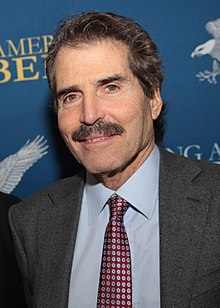Portal:Libertarianism
Introduction
Libertarianism (from French: libertaire, itself from the Latin: libertas, lit. 'freedom') is a political philosophy that upholds liberty as a core value. Libertarians seek to maximize autonomy and political freedom, emphasizing equality before the law and civil rights to freedom of association, freedom of speech, freedom of thought and freedom of choice. Libertarians are often skeptical of or opposed to authority, state power, warfare, militarism and nationalism, but some libertarians diverge on the scope of their opposition to existing economic and political systems. Various schools of libertarian thought offer a range of views regarding the legitimate functions of state and private power. Different categorizations have been used to distinguish various forms of Libertarianism. Scholars distinguish libertarian views on the nature of property and capital, usually along left–right or socialist–capitalist lines. Libertarians of various schools were influenced by liberal ideas.
In the mid-19th century, libertarianism originated as a form of left-wing politics such as anti-authoritarian and anti-state socialists like anarchists, especially social anarchists, but more generally libertarian communists/Marxists and libertarian socialists. These libertarians sought to abolish capitalism and private ownership of the means of production, or else to restrict their purview or effects to usufruct property norms, in favor of common or cooperative ownership and management, viewing private property in the means of production as a barrier to freedom and liberty. While all libertarians support some level of individual rights, left-libertarians differ by supporting an egalitarian redistribution of natural resources. Left-libertarian ideologies include anarchist schools of thought, alongside many other anti-paternalist and New Left schools of thought centered around economic egalitarianism as well as geolibertarianism, green politics, market-oriented left-libertarianism and the Steiner–Vallentyne school. After the fall of the Soviet Union, libertarian socialism grew in popularity and influence as part of anti-war, anti-capitalist and anti- and alter-globalisation movements. (Full article...)
Selected article
Minarchism is a libertarian political ideology which maintains that the state's only legitimate function is the protection of individuals from aggression, theft, breach of contract and fraud (such states are sometimes called night watchman states). Some minarchists defend the existence of the state as a necessary evil. Minarchism is closely associated with right-libertarianism, propertarianism and classical liberalism.
Samuel Edward Konkin III, an agorist, coined the term in 1971 to describe libertarians who defend some form of compulsory government. Konkin invented the term "minarchism" because he initially felt dismayed of using the cumbersome phrase "limited-government libertarianism".
Selected quote
| “ | Even more remarkably, the Libertarian party achieved this growth while consistently adhering to a new ideological creed—"libertarianism"—thus bringing to the American political scene for the first time in a century a party interested in principle rather than in merely gaining jobs and money at the public trough. We have been told countless times by pundits and political scientists that the genius of America and of our party system is its lack of ideology and its "pragmatism" (a kind word for focusing solely on grabbing money and jobs from the hapless taxpayers). How, then, explain the amazing growth of a new party which is frankly and eagerly devoted to ideology?
One explanation is that Americans were not always pragmatic and nonideological. On the contrary, historians now realize that the American Revolution itself was not only ideological but also the result of devotion to the creed and the institutions of libertarianism. The American revolutionaries were steeped in the creed of libertarianism, an ideology which led them to resist with their lives, their fortunes, and their sacred honor the invasions of their rights and liberties committed by the imperial British government. Historians have long debated the precise causes of the American Revolution: Were they constitutional, economic, political, or ideological? We now realize that, being libertarians, the revolutionaries saw no conflict between moral and political rights on the one hand and economic freedom on the other. On the contrary, they perceived civil and moral liberty, political independence, and the freedom to trade and produce as all part of one unblemished system, what Adam Smith was to call, in the same year that the Declaration of Independence was written, the "obvious and simple system of natural liberty." |
” |
| — Murray Rothbard (1926–1995) For a New Liberty (1973) |
Selected picture
 |
General images
Selected biography -
John Frank Stossel (born March 6, 1947) is an American libertarian television presenter, author, consumer journalist, political activist, and pundit. He is known for his career as a host on ABC News, Fox Business Network, and Reason TV.
Stossel's style combines reporting and commentary. It reflects a libertarian political philosophy and views on economics which are largely supportive of the free market. He began his journalism career as a researcher for KGW-TV, was a consumer reporter at WCBS-TV in New York City, and then joined ABC News as a consumer editor and reporter on Good Morning America. Stossel became an ABC News correspondent, joining the weekly news magazine program 20/20, and later became a co-anchor. In October 2009, Stossel left ABC News to join the Fox Business Network. He hosted a weekly news show on Fox Business, Stossel, from December 2009 to December 2016. In 2019, Stossel launched StosselTV, an online channel distributed on social media. (Full article...)Related portals
Parent portals
Socio-political portals
Topics
Categories
Points of interest
| Points of interest related to Libertarianism on Wikipedia: History – Portal – Category – WikiProject – Alerts – Deletions – Assessment |
Associated Wikimedia
The following Wikimedia Foundation sister projects provide more on this subject:
-
Commons
Free media repository -
Wikibooks
Free textbooks and manuals -
Wikidata
Free knowledge base -
Wikinews
Free-content news -
Wikiquote
Collection of quotations -
Wikisource
Free-content library -
Wikiversity
Free learning tools -
Wiktionary
Dictionary and thesaurus



































